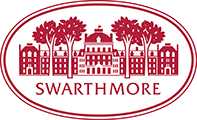ITS and the Libraries are pleased to announce the SPEED Project awardees for the Summer of 2017.
Each Spring, the Swarthmore College Libraries and ITS invite all current employees to submit proposals to Swarthmore Projects for Educational Exploration and Development (SPEED). SPEED awards provide dedicated support from software developers, librarians, academic technologists, and student interns for an eight-week period of project development. With a SPEED project team’s help, faculty and staff can create a new digital object or resource that enhances teaching or facilitates undergraduate research. For Summer 2017, the projects will focus on Data Visualizations. From infographics to interactive maps to network diagrams, creating graphical displays of information happens across disciplines, whether to explore and synthesize, experiment and reframe, or present an argument.
Successful projects must have all of the following:
• a strong focus on graphically engaging data to support undergraduate learning or for the campus, national or global community
• a commitment by the proposing faculty or staff to actively participate in the project on a daily basis
• a scope that can be completed within eight weeks
• a plan to be put into use in the 2017-18 academic year.
Exploring Vanuatu culture, plants and words
David Harrison, Jeremy Fahringer, and Kevin Murphy ’19 (Linguistics)
This project will take complex data sets consisting of “cultural and landscape photos, cultural videos, digitized plant specimens, story narratives, [and] place names” from the South Pacific nation of Vanuatu and make the information accessible to the public.
Roadmap
Liz Derickson (Dean’s Office) and Erin Massey (Career Services)
Visualizing a path through Swarthmore’s curriculum and to a career can be challenging for students and academic advisors. The Roadmap project will develop visualizations based on “students’ academic and career trajectories, to demonstrate the non-linear, liberal arts experience.”
Visualizing Early Novels Datasets
Rachel Sagner Buurma (English Literature)
The Early Novels Database “generates high-quality metadata about novels published between 1660 and 1850 in order to make early works of fiction more available to both traditional and computational modes of humanistic study.” This project will focus on creating visualizations that allows users to interact with data collected by the Early Novels database.
Abstract Algebra made Solid
Elizabeth Drellich (Mathematics and Statistics)
Algebraic groups can be difficult to visualize, especially in higher dimensions. This project will develop a website that allows users to generate their own downloadable 3D models of certain finite (complex) reflection groups. We will use our 3D printers to fabricate physical models of some of the designs.
